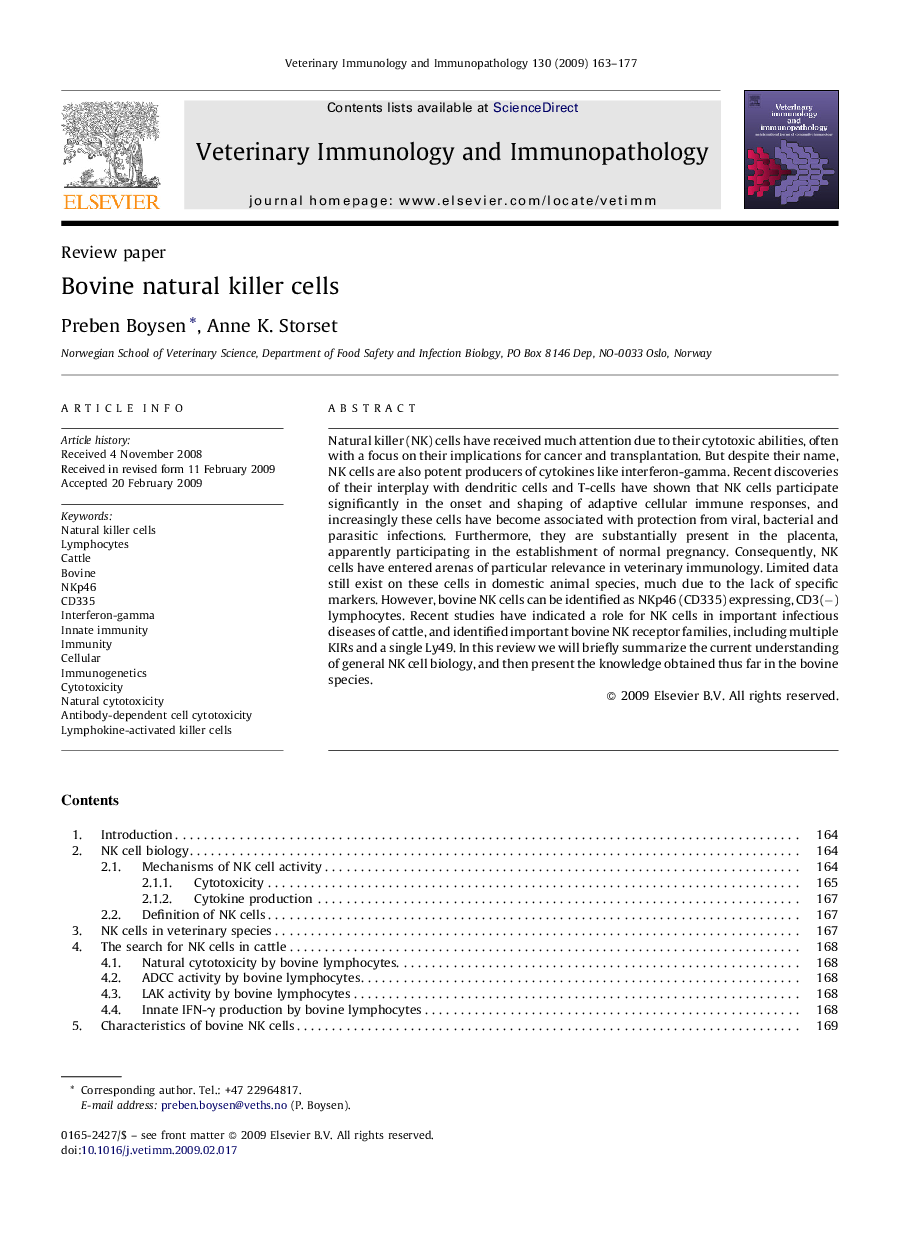| کد مقاله | کد نشریه | سال انتشار | مقاله انگلیسی | نسخه تمام متن |
|---|---|---|---|---|
| 2462664 | 1555086 | 2009 | 15 صفحه PDF | دانلود رایگان |

Natural killer (NK) cells have received much attention due to their cytotoxic abilities, often with a focus on their implications for cancer and transplantation. But despite their name, NK cells are also potent producers of cytokines like interferon-gamma. Recent discoveries of their interplay with dendritic cells and T-cells have shown that NK cells participate significantly in the onset and shaping of adaptive cellular immune responses, and increasingly these cells have become associated with protection from viral, bacterial and parasitic infections. Furthermore, they are substantially present in the placenta, apparently participating in the establishment of normal pregnancy. Consequently, NK cells have entered arenas of particular relevance in veterinary immunology. Limited data still exist on these cells in domestic animal species, much due to the lack of specific markers. However, bovine NK cells can be identified as NKp46 (CD335) expressing, CD3(−) lymphocytes. Recent studies have indicated a role for NK cells in important infectious diseases of cattle, and identified important bovine NK receptor families, including multiple KIRs and a single Ly49. In this review we will briefly summarize the current understanding of general NK cell biology, and then present the knowledge obtained thus far in the bovine species.
Journal: Veterinary Immunology and Immunopathology - Volume 130, Issues 3–4, 15 August 2009, Pages 163–177